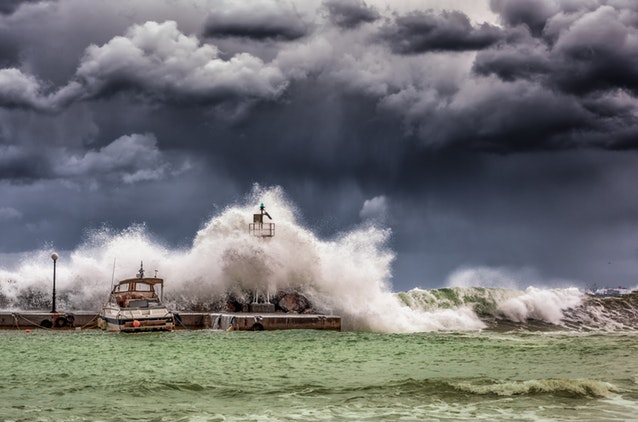How to Prepare for Hurricanes in the Northeast
Posted by Kristopher Schwind

It’s officially National Hurricane Preparedness Week! Preparing for hurricanes is an important part of living in the Northeast. Although many Americans from other parts of the country think mostly of hurricanes hitting southern states like Florida, Louisiana, and Texas, Northeasterners know that hurricanes affect us, too.
Whether you are new to the area or you have lived here your whole life, there are important steps to take to keep your home and family as safe as possible during a hurricane. Even if the hurricane has been downgraded to a tropical storm by the time it heads north, there are still best practices you can follow to minimize damage and make sure everyone stays safe.
Hurricanes in the Northeast can damage property, cause major problems for infrastructure, and lead to injury or loss of life. Here are the best ways to prepare to minimize your risk of loss during a hurricane or tropical storm.
#1: Have an emergency plan and be sure that everyone in your family is aware of it.
Where will everyone meet or gather before a storm? What will you eat in the event of a power outage? Will you stay at your house or go somewhere else? Will anyone else come stay with you? These questions are just some of the factors you will want to consider in advance of a tropical storm or hurricane. The more you have planned in advance, the fewer decisions you have to make under pressure.
If you care for very young children or the elderly, that is going to be a part of your preparation process. You also need to know what your plan is for any pets. You don’t want to be forced to make a heartbreaking decision simply because you haven’t accommodated for your furry friends.
#2: Know your evacuation route.
Your state or local municipality should be able to provide you with information about the best way to leave your neighborhood in advance of a major storm. Be sure to know where flooding is likely to occur so that you can avoid streets that will be closed or dangerous due to rising waters. In coastal areas, this can be especially important.
#3: Keep your insurance current and learn what is covered by your plan.
Keep an updated inventory of your property and belongings so that in the event of damage, you can provide accurate, up-to-date information about the condition of your home and possessions. Taking pictures can help with this; you’ll be able to replace your possessions that much faster if you can offer your agent an accurate accounting of your things.
#4: Complete hurricane prep on your property every year.
In the Northeast, this means making sure your doors and windows are hurricane strength, and that you have storm shutters on all of your windows. You should regularly manage any dead or hanging limbs and branches from trees that could easily blow down and into your house. We are proud of our trees in much of the Northeast, but you need to regularly cull dead or dying trees to prevent damage to your home in a storm.
#5: Keep non-perishables on hand in case of any emergency, but especially an infrastructure-damaging hurricane or tropical storm.
According to the Insurance Information Institute, the following non-perishables can be kept on hand at all times to keep you from rushing around in the days and hours before an impending storm:
- Extra batteries
- Candles or lamps with fuel
- Matches (keep these dry)
- Materials and tools for emergency home repairs–such as heavy plastic sheeting, plywood, a hammer, etc.
- Prescription drugs
- A three-day supply of drinking water
- Food that you don’t have to refrigerate or cook
- First aid supplies
- A portable NOAA weather radio
- A wrench and other basic tools
- A flashlight
#6: Have a plan for back-up power in case of an outage that can last hours, days, or even more than a week.
Generators are an important part of Northeastern living. Even if you haven’t experienced a hurricane-related power outage in recent memory, storms play a huge role in power outages that Northeasterners risk every year.
Even homes and businesses that aren’t in the path of the storm can still be affected by high winds, infrastructure failures, and other outages. Having a working, recently serviced generator on hand during a storm can give you peace of mind that you are not going to lose electricity.
You can rely on National Standby Repair to take care of your power needs during a storm. If you already have a residential or commercial standby generator, consider starting an Annual Service Contract to ensure your system continues to provide decades of service and save thousands of dollars in repair and replacement costs. (Plus, our NSR Annual Service Contract warranties your generator, even after the manufacturer’s warranty has expired.)
Don’t have a standby generator? We’re happy to offer a free generator assessment to determine what model works best for your home, business, or building.
Kristopher Schwind is the proud owner of National Standby Repair.
 24/7 EMERGENCY GENERATOR SERVICE
24/7 EMERGENCY GENERATOR SERVICE REQUEST A QUOTE
REQUEST A QUOTE
 (914) 734-1400
(914) 734-1400